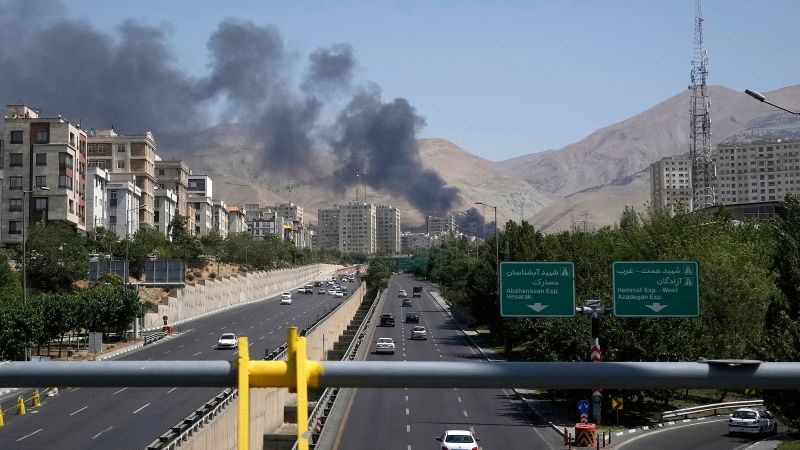Iranian Israeli Conflict Intensifies Over Nuclear Program
The Iranian Israeli conflict has sparked concerns about the potential for nuclear proliferation in the region, with critics arguing that an Iranian withdrawal from the NPT could have a negative impact and lead to a ripple effect in the region. The US has directed its team to attempt a meeting with Iranian officials as quickly as possible, but warned Iranians to "immediately evacuate" Tehran. The situation remains volatile, with civilians caught in the crossfire and the international community watching with bated breath.

Iran has threatened to withdraw from the nuclear Non-Proliferation Treaty (NPT) after Israel launched an unprecedented attack on its nuclear and military sites, killing several nuclear scientists and scholars along with top military commanders. The Iranian government says parliament is drafting legislation to withdraw from the NPT, citing the Israeli attacks as a reason. This move could spark concerns that Tehran could secretly advance towards developing nuclear weapons.
The conflict between Iran and Israel has been escalating for a fifth consecutive day, with civilians in flashpoint areas facing waves of attacks. The conflict has resulted in significant casualties, with at least 224 people killed in Iran and 24 people killed in Israel. Israel has targeted Iranian military commanders, scientists, and nuclear facilities, including the Fordow plant, which is buried deep in the mountains near Qom. Iran has responded with missile strikes on Israeli cities, including Tel Aviv and Herzliya.
The NPT has been criticized for being discriminatory, with India describing it as "discriminatory, unequal and flawed" because it allows countries with nuclear weapons to continue having them while banning others from access to atomic bombs. The International Atomic Energy Agency (IAEA) has also faced criticism from Iran over a recent censure that Tehran said facilitated Israel's attack. If Iran exits the treaty, it would no longer be bound by the NPT's requirements, including oversight by the IAEA, obligations related to nuclear transparency, and a commitment to not building a nuclear bomb.
The conflict has also led to evacuations of students from India and Pakistan, with hundreds of students arriving back in their home countries. The US has military assets available for use in the Middle East, including the B-2 bomber, which can carry the GBU-57/B "bunker buster" bomb. However, experts are cautious that even this bomb may not be able to destroy Iran's deeply buried nuclear facilities. The full extent of the damage to Iran's nuclear sites is not yet clear, but Israeli Prime Minister Benjamin Netanyahu has said that the strikes have set Iran's nuclear program back significantly.